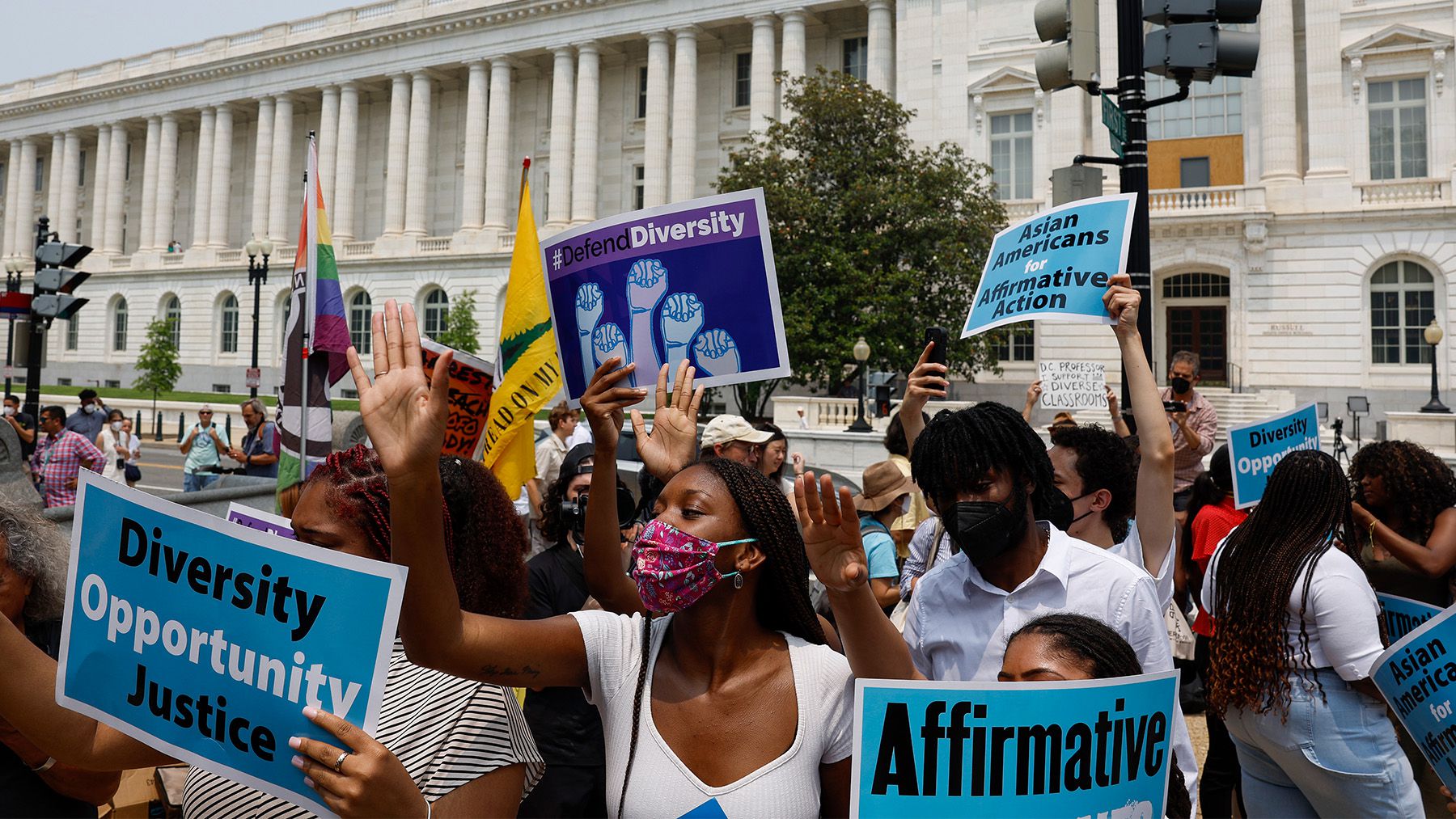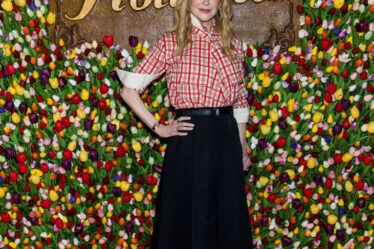
Fearless Fund, an Atlanta-based venture capital firm that invests in women of colour, is the latest legal target of conservative activists who oppose race-based diversity programmes.
The four year-old fund, which has invested in more than 40 companies, including beauty brands Bread Beauty, Brown Girl Jane and The Lip Bar according to its website, is being sued for alleged racial discrimination by The American Alliance for Equal Rights. The same organisation, founded by conservative activist Edward Blum, was behind the lawsuit that led the US Supreme Court to declare affirmative action in college admissions unconstitutional. (Fearless Fund and AAER did not immediately respond to BoF’s request for comment.)
The group’s latest suit, filed last week in federal court in Atlanta, takes aim at the Fund’s Fearless Strivers Grant Contest, a Mastercard-backed event that awards $20,000 small business grants to Black women four times a year. The conservative group claims the programme violates the Civil Rights Act of 1866 by making only Black women eligible for the award.
In its choice of target and legal argument, the litigation lends fresh weight to warnings from activists, minority entrepreneurs and others that corporate diversity efforts could be next in the crosshairs after the Supreme Court’s June decision.
In fashion and beauty, many companies have touted minority hiring programmes, investments in Black-owned businesses and other diversity, equity and inclusion efforts in the wake of the racial justice protests of 2020. Were the AAER to prevail in court, the fear is that initiatives that explicitly seek to increase minority representation could be deemed illegal. Some also anticipate the case itself to have a chilling effect on such efforts, regardless of the outcome.
“This lawsuit, whether it sticks or not, puts us on high alert — and not just Black people but minorities in general,” said Rashae Barnes, a celebrity publicist who this year launched her own nonprofit investment company for Black women, Evals Equity.
In an email statement Friday, Danika Berry, a beauty entrepreneur and public relations consultant who has worked with Mielle Organics’ Monique Rodriguez and Janell Stephens of Camille Rose, among other founders, described the lawsuit as a “critical moment in the fight for diversity and inclusivity within the beauty sector.”
“I have witnessed the incredible talent and potential of these [Black women] entrepreneurs,” she wrote. “It deeply troubles me to see the obstacles they face in accessing funding on par with their counterparts in the industry.”
Why These Funds Exist
Much of the groundswell of efforts meant to improve DEI over the past three years focused on areas like corporate and C-suite diversity, forging new mentorship programmes and giving shelf space to a greater number of Black-owned brands at retail.
Black-led funds include the Fearless Fund and The Black Girl Ventures Foundation, a fund launched in 2016 by serial entrepreneur and computer scientist Shelly Bell focusing on tech founders. Other initiatives at large investment firms like Goldman Sachs focus on minority founders. Aurora James, the accessories founder who launched the Fifteen Percent Pledge that pressures retailers to add more Black-owned brands to their shelves, also announced her own fund, The Friends and Family Collective, last month.
Still, the amount of funding going to Black-owned businesses has remained stubbornly low. Black entrepreneurs received only 1.1 percent of VC funding in 2022, according to Crunchbase, while Black Americans make up roughly 15 percent of the US population.
The AAER lawsuit, which cites the recent Supreme Court ruling on affirmative action, alleges that because the Fearless Fund states that its application is only open to Black women, it is engaging in “explicit racial exclusion.” It says it represents three female small business owners who meet all of the grant’s requirements aside from race, who are put at a disadvantage by the requirement.
Arguments against efforts to support Black businesses rest on the mistaken assumption that doing so requires organisations to lower their standards to pursue a social good, said Adjoa Asamoah, the political and social impact strategist who developed The Crown Act, a first-of-its-kind California law prohibiting discrimination based on hair style and hair texture. In reality, these funds are in the business of discovering high-quality start-ups overlooked by mainstream VC firms.
“Black is not the opposite of best — funds like these help to identify the best brands, period,” she said. “Even if you don’t care about social impact, even if you don’t care about creating an inclusive work culture and climate … this is just good business — on a strictly financial basis.”
Many Black businesses make items such as inclusive makeup shades and multicultural hair products that may not resonate with white investors, said Akilah Cadet, founder and CEO of DEI consultancy Change Cadet. That’s what makes the AAER’s decision to target a fund led by Black investors particularly problematic, she said.
For instance, Essence founder Richelieu Dennis’s New Voices Fund was among the first major investors in Mielle Organics, helping get the brand to scale before its acquisition P&G Beauty this year.
“There’s a lack of representation in VCs in general,” Cadet said. “Without minority-led VCs these brilliant Black women will have to partner with white men … They will also have to code switch and compromise their business plan to get funding.”
Another reason dedicated funds — like Barnes’ Evals Equity — have been popping up recently is to help Black founders circumvent “predatory clauses” that are standard in some existing VC investments, Asamoah noted.
“Having investors that understand that, because they’ve either experienced it themselves as entrepreneurs or because they are a part of the culture, is essential,” she said.



